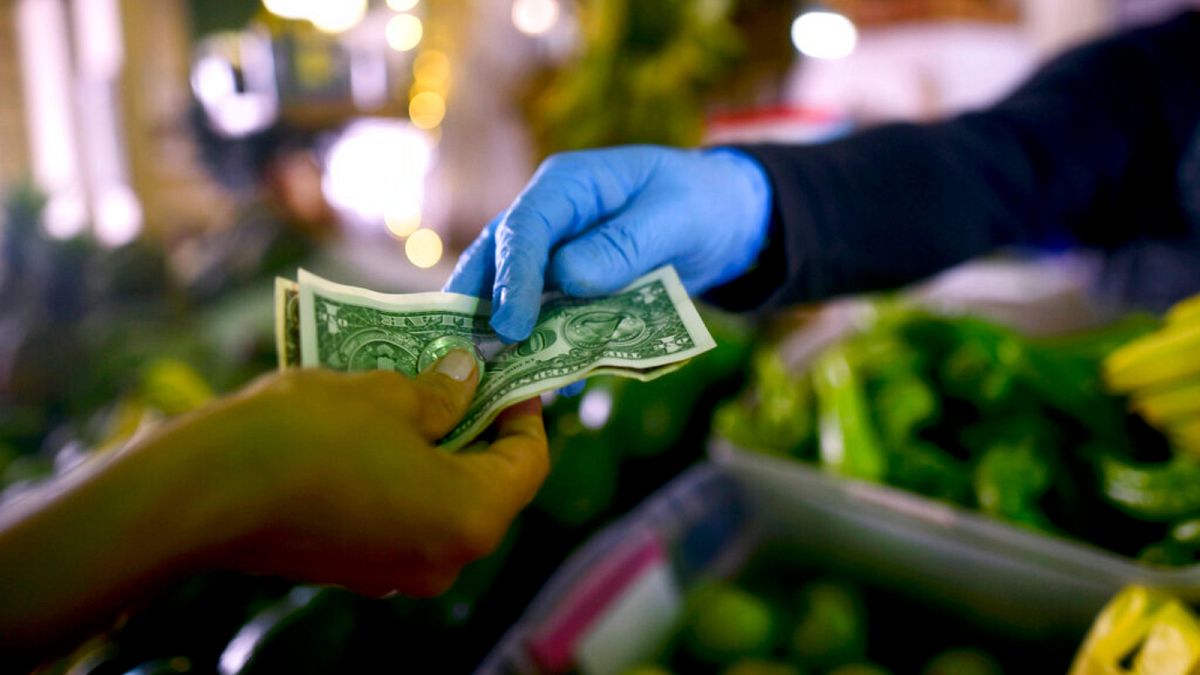Several countries have increased the limit for contactless payments, to reduce the handling of cash and the risk of infection.
People have long hoarded banknotes in uncertain times, but the coronavirus pandemic may prove an exception: passed from person to person, cash is making people nervous.
Across Europe, as economies get back up and running after weeks of lockdown, shopkeepers and customers are looking for ways to limit the chances of infection. Many stores are now asking customers to use their debit or credit cards instead of cash.
"We know it’s very important for customers and staff to feel safe. So one of the first things that we did is to say ‘we’re going to go cashless – everything has to be paid by card," said Abdul Virji, owner of Cafe de Nata in London.
"And because our transaction value is normally between £5 and £10 on average, maybe £20, it’s easy for people to pay by contactless card."
The idea of touching banknotes and coins right now may feel icky for many. Studies have found the new coronavirus can live on some surfaces for as long as three days.
A growing number of people and businesses worldwide have stopped using paper money for fear it could carry the virus. In China, banks are now required to sterilise cash with ultraviolet light or heat.
Some analysts believe the COVID-19 pandemic is accelerating a shift towards a wholly cashless society.
"In the past, if you forgot your wallet at home, you’d turn around and go back for it. Well, my kids now they don't even know what a wallet is. They believe it's a pre-installed app in the iPhone," Charlotta Wark, head of banking at IT and business consulting firm CGI, told Euronews in a live TV interview.
She thinks societies will eventually get rid of cash altogether: "I don't think many of you have a videotape that you use at home or an LP record, other than for sentimental reasons and that is definitely the way we're heading."
Dr. Wolfram Seidemann, chairman of the International Currency Association, a pressure group representing the cash printing industry, disagrees. He argues that cash has "a huge value to society" and continues to be used in most transactions around the world.
In Europe, cash is used in around 79 per cent of all transactions in volume and 54 per cent of them in value, according to the latest World Cash Report by security firm G4S. In North America, where card payments are most regularly used, cash is still used for 31 per cent of transactions.
"I think this has been a rather unfounded campaign against cash, building on anxieties and fears. And I think that's rather dangerous because so many fragile parts of society are relying on cash, and that would add an additional burden," Seidemann said.
Going cashless does have its disadvantages. It can make people less aware of how much they’re spending and can worsen certain behaviours such as compulsive shopping or gambling. And of course, there’s the risk of online glitches and hackers.
But Wark argues that this digital shift is inevitable and that there’s greater risk in resisting it than embracing it. She says citizens should encourage their governments and central banks to work on cashless alternatives, or else risk losing control over the process.
"If they don't, then we will have the tech giants such as Facebook's initiative with Libra as an example, they will move in and take that space. And before you can blink, the entire world population will be using a currency controlled by one of the tech giants," she warned.
So, cash or card? Which method of payment do you prefer? And are we heading towards a world where coins and notes no longer exist? Share your comments below.
